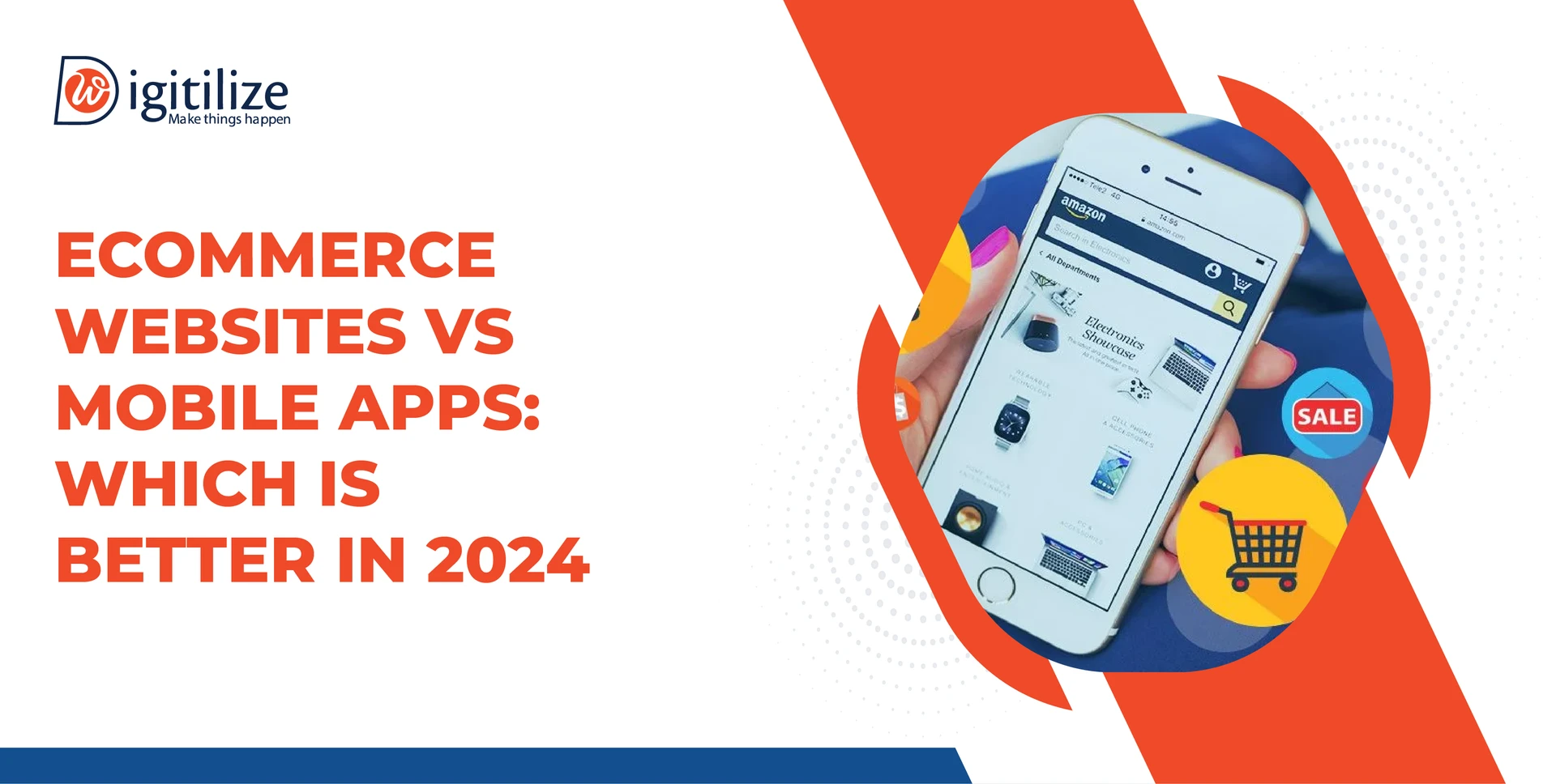Ecommerce Websites vs Mobile Apps: Which is Better in 2024
 This article will discuss the comparison between ecommerce websites and mobile apps UK and cover all the other information you need to know about ecommerce websites vs. mobile apps: which is better in 2024.
Selecting the best platform for your internet business can be difficult, even if both channels have many advantages. To assist you in making an informed choice, we will go over several topics, such as ecommerce customer experience, development cost, and marketing strategies. So, let’s analyse which platform is best for your online company as we go into the realm of ecommerce websites and mobile apps.
This article will discuss the comparison between ecommerce websites and mobile apps UK and cover all the other information you need to know about ecommerce websites vs. mobile apps: which is better in 2024.
Selecting the best platform for your internet business can be difficult, even if both channels have many advantages. To assist you in making an informed choice, we will go over several topics, such as ecommerce customer experience, development cost, and marketing strategies. So, let’s analyse which platform is best for your online company as we go into the realm of ecommerce websites and mobile apps.
Advantages of Mobile-friendly ecommerce websites

-
Increased revenue with reduced expenditure
-
Simplified mobile and web experience
-
Greater coverage
-
Better Search Engine Optimisation
-
Streamlined upkeep
Disadvantages of ecommerce mobile-friendly website

-
Not accessible offline
-
Not a single extra feature
-
A less satisfying user experience
Benefits of ecommerce mobile apps
-
Lower expenses for marketing and advertising
-
Inaccessible offline
-
Enhanced user encounter
-
Indigenous characteristics
Disadvantages of ecommerce mobile app
-
Developmental costs
-
Reduced visibility
-
Installation and download are required
-
Reduced interoperability
Ecommerce Websites vs. Mobile Apps: Which is Better in 2024?
 If you operate an online store, you want as much exposure as possible for your company. You thus need both if you plan to reach both online and mobile consumers.
Actually, a lot of well-known ecommerce like Amazon, eBay, and Flipkart are giving both web-based ecommerce solutions and mobile applications top priority. However, because of budgetary constraints, schedule constraints, and labor shortages, not every company can afford to invest in both systems. As a result, businesses may end up making concessions and choosing a compromise.
Having stated that, let’s examine mobile app vs website for online shopping have variety of criteria to determine which one would be a more beneficial investment for you.
If you operate an online store, you want as much exposure as possible for your company. You thus need both if you plan to reach both online and mobile consumers.
Actually, a lot of well-known ecommerce like Amazon, eBay, and Flipkart are giving both web-based ecommerce solutions and mobile applications top priority. However, because of budgetary constraints, schedule constraints, and labor shortages, not every company can afford to invest in both systems. As a result, businesses may end up making concessions and choosing a compromise.
Having stated that, let’s examine mobile app vs website for online shopping have variety of criteria to determine which one would be a more beneficial investment for you.
-
Personalised experiences
-
Development speed
-
Development cost
-
- A group of web developers proficient in HTML, CSS, and JavaScript
- A crew for ongoing upkeep and improvements, which over time may raise the total cost
- The length of the development process and the cost are determined by the complexity of the project.
-
- A specialised group with knowledge of technologies for mobile development like Flutter or React Native
- Regular upgrades and upkeep, which eventually raises the price
- Developing an app might involve more work than creating a website since it needs to be compatible with a variety of hardware, operating systems, and screen sizes.
- Compared to the construction of ecommerce websites, this may result in a longer development timetable and higher total costs.
-
Visibility
-
Information and Evaluation
What we recommend
There is no definitive solution when it comes to selecting between an ecommerce websites vs mobile apps UK 2024. An ecommerce firm can benefit from using both mobile websites and applications. Nonetheless, we advise beginning with a website that is adaptable to mobile devices. In addition to being the face of your company to many customers, your website acts as the flagship for your brand. Consider utilising an ecommerce website design agency in UK to create a responsive website. If you still have further confusion, let’s brainstorm together! Contact us NOW! For more such information stay connected on LinkedIn.FAQ
Frequently Asked Questions
Apps are clearly superior than mobile websites when it comes to the average amount of time spent using them. Nevertheless, if your clients aren't making frequent purchases, you might not even require applications. Invest money wisely!
You have the last say. If your website is sleek, contemporary, and optimised for mobile devices, a mobile app might enhance it and help your omnichannel approach. You can get in touch with our team, and we will examine the feasibility of your idea.
Because web-based programming languages like HTML and CSS are simpler to use and develop, most apps can be easily created utilising web apps. Users of web applications benefit from increased security. You may access web applications with flexibility from any location with internet connectivity.
Indeed, it is possible to turn any website into an iOS or Android app.
Website builder systems like Wix, Squarespace, or WordPress are your friends if you want to swiftly design, develop, and publish a website. These platforms use pre-designed templates and drag-and-drop capabilities to ease the entire process.
The easiest and most affordable method to go online in 2024 is with GoDaddy. According to our analysis of pricing, GoDaddy offers the greatest value for the money. However, to get professional touch, its better to hire expert like us.

